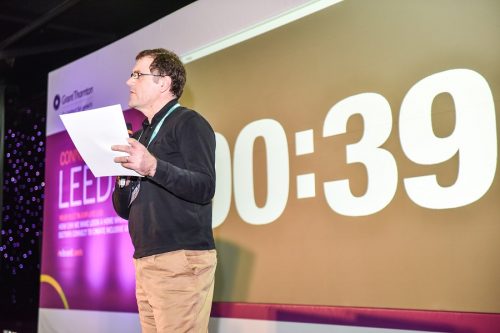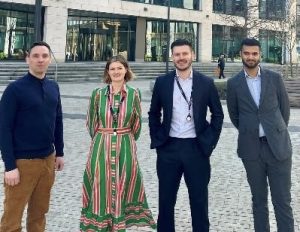How Digital Education Will Create a Bright Future for Leeds

Glynn Robinson, managing director of award-winning IT consultancy BJSS, celebrates Grant Thornton’s ongoing Vibrant Economy movement and discusses how Leeds can lead the way on digital education
Leeds is a city of collaboration. And no better was this demonstrated than at Grant Thornton’s recent Live Lab event in Leeds.
Leeds is already leading the way in many areas. Yet it was inspirational to see more than 300 members of the city’s public, private and third sectors come together to discuss how Leeds can be an even better place to live, work and play. The galvanising effect that this type of forum has should not be underestimated.
It was clear from the ideas generated on the day, and the positive dialogue that has taken place since, that there is a real willingness from stakeholders across the city to make things happen. In this regard, Grant Thornton must be applauded, not only for this event, but for the ongoing positive impact its Vibrant Economy focus is having as a catalyst for positive change.
One aspiration that came through strongly at the Live Lab was for Leeds to become a world leader in digital. As the managing director of an established IT consultancy that is a significant employer in the city, I believe that Leeds is already well on its way to achieving this. The region is a hotbed of innovation and digital talent – the continued growth and pull of major companies such as Sky and Sky Bet are examples of this perfect positive storm. There are particular strengths in the health sector, with organisations such as NHS Digital, EMIS and TPP based locally, and also in the financial services sector, with the Leeds region the biggest centre for banking outside London. These industry specialisms provide an ideal platform for developing digital propositions in the health and fintech spaces.
However, we need to ensure that as a region we are doing all we can to develop the digital skills required in a strong and growing economy – a hot discussion topic at the Leeds Live Lab. Our universities are already strong in this regard, with the University of Leeds being recognised as a leading university for computer science, but more must be done earlier in education. The recent Government Green Paper on Building Our Industrial Strategy has identified skills development as an area of focus with a CBI report showing that education and skills are the biggest factor in regional variations in productivity. Given that GCSE performance in the region remains consistently below the national average and 6% of 16 to 17 year old are recorded as NEET, it is clear how important it is that an emphasis is placed on improving these skills.
Undoubtedly, there are some really strong relationships between our young people and business but there is still work to be done to build further positive and long-standing relationships between business and schools. Employers are clearly keen to do more to bridge this gap and these relationships have a real impact – young people who have multiple encounters with business are five times less likely to become NEET and will earn on average 16% more than those who do not.
Whilst there are many ways in which businesses can help, I thought I would share some of the areas we are working on by way of example.
I work as an Enterprise Adviser with the Leeds City Region Enterprise Partnership (LEP). The Enterprise Adviser network is a route to equipping our young people with the enterprising skills they need to support and inspire their career aspirations. The programme aims to make the LEP a single point of contact for schools and colleges wishing to develop their careers and enterprise education strategy, and the single point for businesses wishing to work with young people at a strategic level. As part of this engagement nine graduates who recently joined BJSS worked in collaboration with a group of year 13 students, mentoring them, providing feedback and giving them a view of life in a working environment. The impact on the students was fantastic and there is real appetite for future initiatives.
We are also working in partnership with Turinglab, an organisation dedicated to teaching fundamental coding skills to school children aged between 11 and 16. BJSS is financing 100 scholarships each year for children from low income families, initially in Leeds and Manchester. We will also provide Turinglab, an organisation founded with the aim of improving digital-skill focused STEM education in the UK, with pro-bono software development expertise, in addition to marketing and commercial support. This partnership is a demonstration of how students, business and universities are collaborating to address the UK’s IT skills gap and pass on important skills to the next generation in an increasingly digital world.
I would encourage more employers to come forward to pass on their experience and skills to the rising digital stars of the future to enable the true legacy of the ground breaking positive work of organisations such as Grant Thornton to be fully realised.
If this has sparked some ideas, Grant Thornton would love to get you involved. Please join our community HERE.








